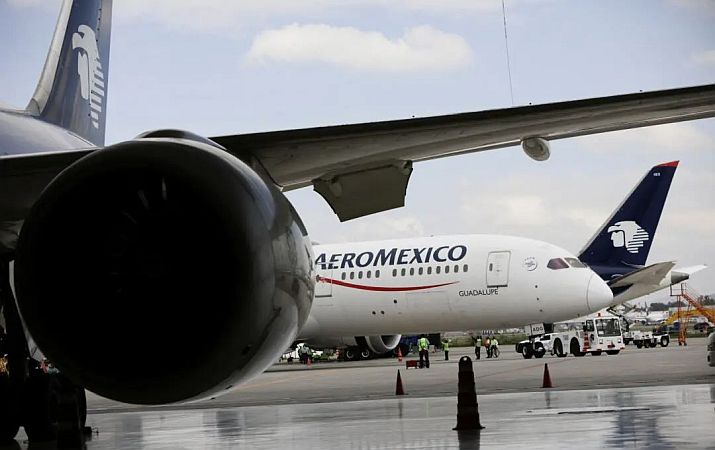
Mexico City – The U.S. Department of Transportation (DOT) has revoked authorization for 13 routes operated by Mexican airlines between Mexico and the United States, citing alleged violations of the 2015 Air Transport Agreement. The decision, announced under DOT order DOT-OST-2025-0436, impacts 11 routes from Felipe Ángeles International Airport (AIFA) and two from Mexico City International Airport (AICM).
The affected carriers include Aeroméxico, Volaris, and Viva Aerobus, which now face an immediate freeze on both passenger and cargo (“belly cargo”) operations to the United States. The ruling also blocks any future expansion of routes or flight frequencies between Mexico and U.S. cities.
According to the DOT, the action comes after repeated complaints that Mexico has, for the past three years, canceled or blocked American carrier flights without penalty, while allowing Mexican airlines to increase service to the United States. The order states that the revocation was necessary because “the operation of these services would adversely affect the public interest” as a result of actions by the Mexican government that limited U.S. carriers’ operational rights.
Flights currently operating between AIFA and the United States – specifically to McAllen and Houston – must be suspended by November 7. Viva Aerobus proposed services connecting Felipe Angeles International Airport (NLU) with major U.S. destinations, including Austin, New York, Chicago, Dallas, Denver, Houston, Los Angeles, Miami, and Orlando are also halted. Aeroméxico’s service from AICM to San Juan, Puerto Rico, and Volaris’ AICM–Newark route were also among those affected.
The DOT has additionally proposed barring Mexican passenger airlines from carrying belly cargo between Juárez and the United States, a measure that could take effect within three months if finalized. The agency said it would continue monitoring Mexico’s compliance with the bilateral air agreement and “may impose further measures if necessary.”
In response, Mexican President Claudia Sheinbaum expressed her disagreement with Washington’s decision, describing it as a “unilateral action.” She announced plans to seek a meeting between Mexico’s foreign minister and the U.S. Secretary of State to discuss the issue, adding that she remained confident both countries could reach a mutual understanding.
Despite the current tensions, officials from both sides have expressed interest in maintaining open communication, underscoring the importance of bilateral cooperation in one of the world’s busiest cross-border aviation markets.

We Need Your Support: While other media outlets have retreated behind paywalls, at Banderas News, we believe news should be free for everyone. Would you help us provide essential information to our readers at no cost? We can’t do it without you. Your contribution helps us sustain and grow.





